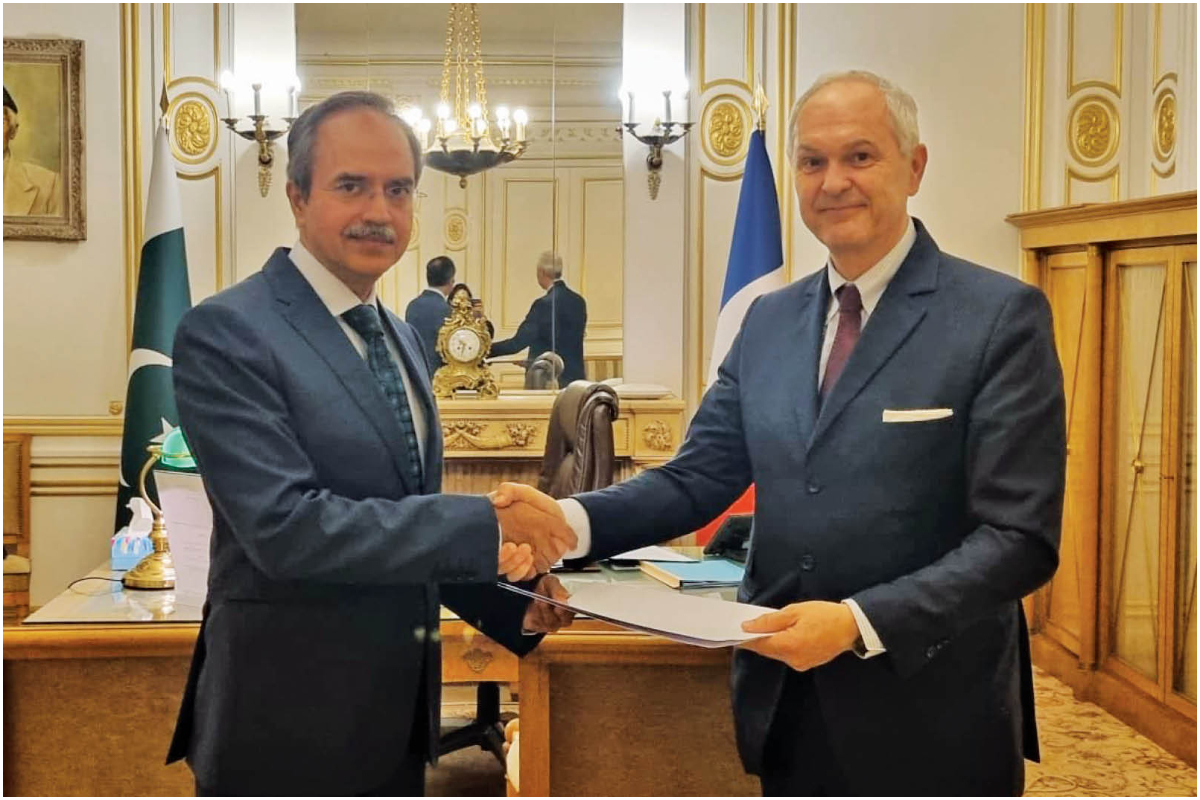
Diplomats stand united against violence
‘Violence has no place in politics. All parties should refrain from violence — US State Department
Islamabad: The attack, which former Prime Minister Imran Khan survived at a public gathering in the central Punjab city of Wazirabad, has drawn widespread reactions from the diplomatic community in Islamabad.
In a very elaborate manner, the American Embassy was the first to condemn it. The message from the US State Department said, “Violence has no place in politics, and we call on all parties to refrain from violence, harassment, and intimidation. The United States is deeply committed to a democratic and peaceful Pakistan, and we stand with the Pakistani people”. As a norm, the US ambassador is always among the first to express reactions to unusual incidents taking place in the country.
The Foreign Ministry of the Kingdom of Saudi Arabia also released a strong condemnation saying, “Saudi Arabia supports all efforts aimed at eliminating violence, extremism, and terrorism in all forms and wishes Pakistan and its people safety, stability, and prosperity”.
Bahrain, Qatar, the UAE and other Gulf states expressed serious concerns regarding the attack and also expressed solidarity with Imran Khan and other victims of the protest march which was in procession when the incident took place. Although the embassies of these countries do not release reactions on public platforms, but former Information Minister Chaudhry Fawad shared the sentiments of these countries with Pakistani audience to highlight their concerns and affection for Khan.
Similarly, ambassadors of the European Union and almost all its member states categorically condemned the attack and expressed solidarity with the victims. Although, most of the European embassies were among the signatories to an appeal made to the Pakistan government, then headed by Imran Khan, to condemn the Russian invasion of Ukraine in an unprecedented session of the United Nations General Assembly in February this year. Pakistan, however, preferred not to take part in the voting, which technically went in favour of Russia. Pakistan was not the only South Asian country to abstain as Bangladesh, India, and Sri Lanka also did not vote to condemn Russia. This scribe was among the few writers who had pointed out that the joint appeal made by the European ambassadors was launched only in Pakistan. After the joint appeal, Imran Khan at a public rally in Vehari, questioned these ambassadors for not formed such a joint front in India. The PTI leaders, and also PPP’s senior leader Sherry Rehman, have frequently criticized these ambassadors.
It is to pertinent to mention here that last year, ambassadors of ten western countries had issued a joint appeal to the President of then Turkey (now Turkiye) to release a person whom they considered an activist while on the contrary, the Turkish government considered a criminal. This common appeal drew quite an opposite reaction from the Turkish president who warned that these ambassadors will be declared ‘persona non grata’ if they fail to withdraw their statement. After that, the ambassadors withdrew their statement.
The lesson in the condemnations of the attack on Imran Khan by the ambassadors is simple: they are messengers; therefore, they must not be criticized publicly. The messages that they make public are expressions of their governments. The volume of diplomatic reactions on the attack brings out the transnational implications of this act. Leslie Scanlon, before coming to Islamabad as the Canadian High Commissioner-designate, said ‘I am Malala’. The deployment was made official after a formal announcement by the Canadian Minister of Foreign Affairs Mélanie Joly.

Days before her deployment, she had read “I am Malala”, an autobiography written by Malala Yousafzai who was given prestigious global awards including the Nobel Prize for resisting violent moves of Taliban to suppress women. “Many different strands (including of course details of the horrific attack on her and her schoolmates in 2012), I learned so much about a complex, beautiful and compelling region in a fascinating part of the world”, she commented on the book. Her last appointment was as an ambassador to Poland. In Pakistan, Canada has a High Commission which functions just like an embassy. Scanlon has replaced Wandy Gilmour who was vocal on gender issues.
On a mission to boost Pak-French ties
Pakistan’s ambassador to France, Asim Iftikhar Ahmed, after taking charge recently said, “Glad to present the copies of credentials to HE Philippe Franc Director of State Protocol”, and added, “Looking forward to advancing Pak-French friendship, shared interests & multifaceted cooperation”.
It is hoped by all the stakeholders that Ahmed, a career diplomat, will perform well at this tough station. The relationship between the two countries is flourishing. France continues to host a big number of Pakistani students at its universities. The Pakistani community in France is also making their mark in business and trade.
On November 8, the French Embassy held a press conference to communicate with the Pakistanis and also to highlight the contributions it has made for the flood victims. France is a strong voice at the global platforms regarding the climate change. Pakistan’s foreign minister and other dignitaries have recently met French government representatives at the COP27 being held at Sharm el Sheikh in Egypt.
Catch all the Urban Insight News, Breaking News Event and Latest News Updates on The BOL News
Download The BOL News App to get the Daily News Update & Live News.












 Read the complete story text.
Read the complete story text. Listen to audio of the story.
Listen to audio of the story.